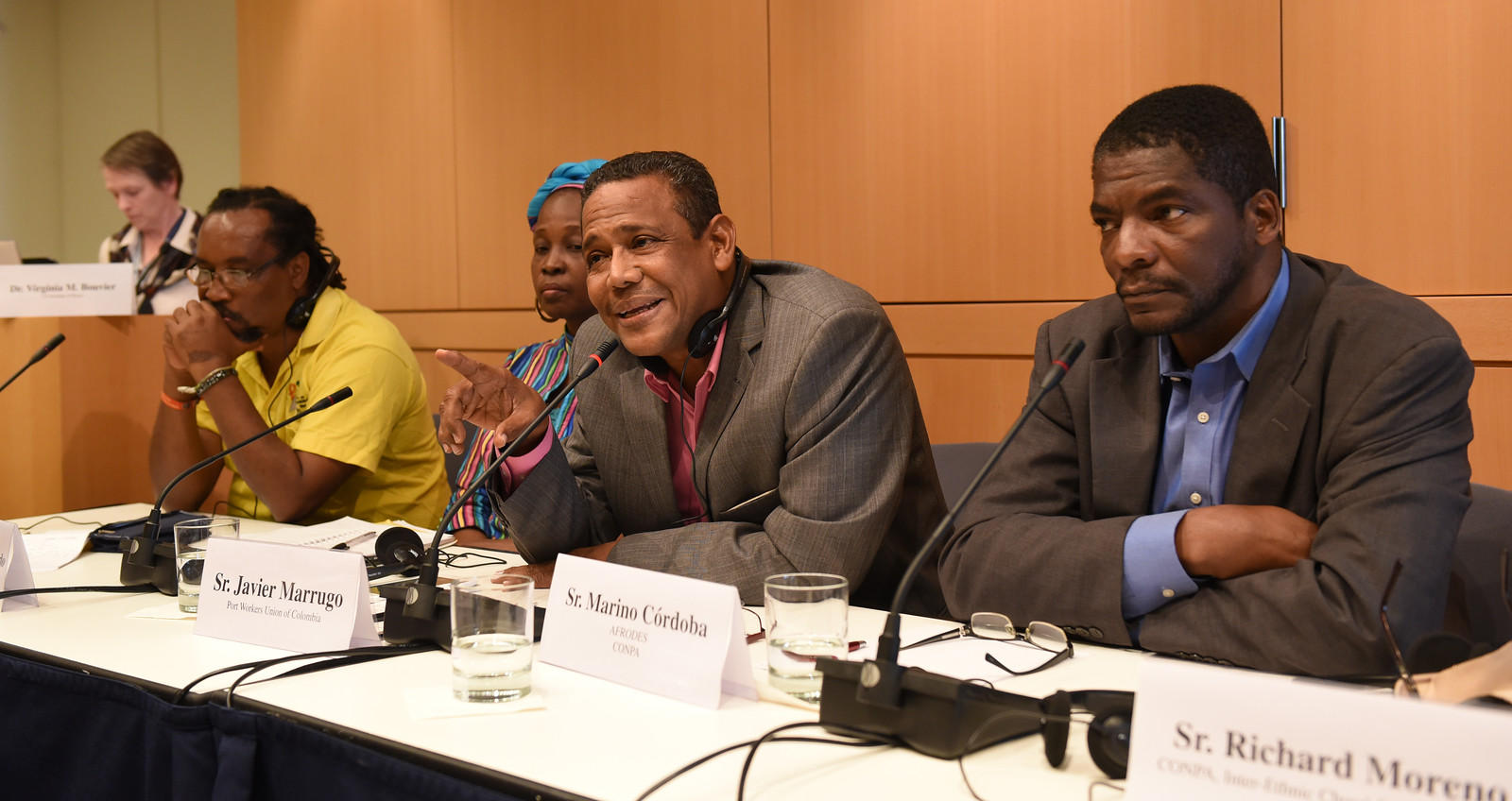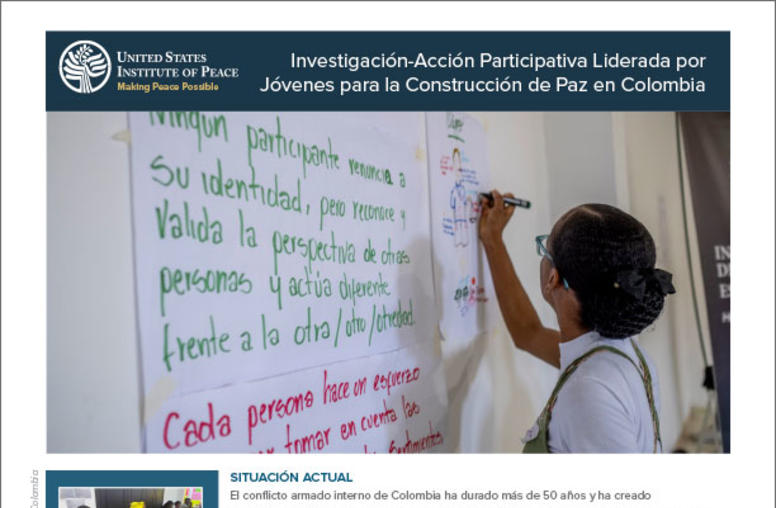Opening the Peace Process to Afro-Colombian Stakeholders
A Colombia Peace Forum
With Colombian public support waning for the peace talks between the government and the Revolutionary Armed Forces of Colombia (FARC), the peace process can be strengthened by finding ways to engage a broader set of civil society stakeholders. One important group excluded so far, the Afro-Colombian population, is working to have its needs and proposals heard at the peace table. How can Afro-Colombians and other excluded groups enhance their participation in the process, and what are the risks if they cannot? The U.S. Institute of Peace held an event on May 26 that answered these questions in the Colombia Peace Forum series.

The 37th round of peace negotiations opened in Havana on May 21. The Afro-Colombian community, one of the many sectors of society not represented at the peace table, has organized a new vehicle to articulate and channel its proposals into the process. The Afro-Colombian Peace Council (CONPA) includes the religious community, women and youth, labor activists and people displaced by the conflict. The council also is designing ways for Afro-Colombian communities to manage the complexities they will face as Colombia implements an eventual peace agreement.
The panel discussed recent peace initiatives of the Afro-Colombian community, the emerging role of CONPA, and the ways that the participation of ethnic communities and other excluded sectors can enhance the effectiveness of peacebuilding across the Colombian landscape.
The event was conducted and webcast in Spanish. Simultaneous English translation was available on site. The conversation continued on Twitter with #ColombiaPeaceForum.
Speakers
- Virginia M. Bouvier
Senior Advisor for Latin America Programs, U.S. Institute of Peace (USIP) - Marino Cordoba
International Coordinator of CONPA and President of AFRODES - Aura Dalia Caicedo Valencia
National Network of Afro- Colombian Women - Javier Marrugo
Port Workers Union of Colombia - Richard Moreno
CONPA Coordinator and Coordinator for the Inter-Ethnic Chocó Solidarity Forum (FISCH) - Father Obdulio Mena Palacios
National Afro-Colombian Conference (CNOA) - Carlos Rosero
Founder, Black Communities Process (PCN) and National Afro-Colombian Authority (ANAFRO)


